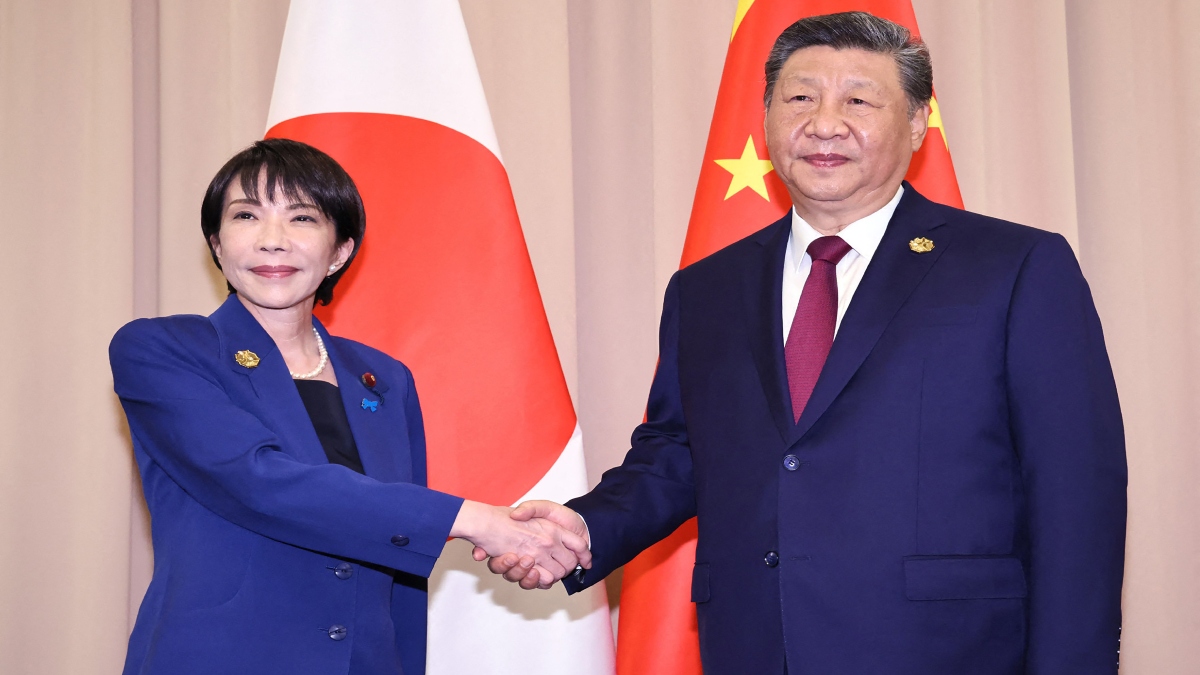China on Friday escalated its feud with Japan to the United Nations, condemning Japanese Prime Minister Sanae Takaichi’s recent remarks on Taiwan as ties between the two Asian neighbours hit their lowest point.
In a letter to UN Secretary-General Antonio Guterres, China’s permanent representative Fu Cong warned that “if Japan dares to attempt an armed intervention in the cross-Strait situation, it would be an act of aggression.” Fu accused Japan of violating international law after Takaichi suggested earlier this month that a Chinese attack on Taiwan could prompt a military response from Tokyo.
Beijing, which claims Taiwan and has not ruled out force to take it, has demanded a retraction — something Takaichi has not offered.
What began as a diplomatic dispute has rapidly widened into an economic confrontation, with both sides accusing each other of damaging trade ties. The row has intensified broader security anxieties over Taiwan, a long-standing flashpoint between the two countries.
In his letter, Fu said Takaichi’s comments amounted to “a grave violation of international law” and warned that China would “resolutely exercise its right of self-defence under the UN Charter” if Japan interfered in cross-Strait affairs. It is the strongest language Beijing has used since the clash erupted two weeks ago.
Beijing sees Taiwan as its territory and insists reunification is inevitable. Taiwan rejects that claim, stressing that only its people can determine their future.
Japanese authorities did not immediately respond to Fu’s accusations, which come amid what many analysts view as the most serious bilateral crisis in years.
Quick Reads
View AllTakaichi, who took office last month, broke with the long-standing strategic ambiguity observed by Japan and the US. On November 7, she told Parliament that a hypothetical Chinese assault on Taiwan — located just over 100 km from Japan — could constitute “a situation threatening Japan’s survival”, a legal classification that allows the deployment of Japan’s military.
Her remarks triggered a tit-for-tat backlash: Beijing accused Japan of undermining trade cooperation, while concerts by Japanese performers in China were suddenly cancelled. Fu urged Tokyo to “stop making provocations, retract its erroneous remarks, and avoid challenging China’s core interests.”
With the 80th anniversary of Japan’s World War II defeat approaching, Beijing has increasingly invoked wartime history and its role in shaping the UN order as it criticises Tokyo. China frequently cites the Cairo and Potsdam Declarations — which envisioned territories seized by Japan returning to China — as the legal basis for its claim over Taiwan. However, many governments treat these declarations as political statements rather than binding treaties.
The declarations were also signed by the Republic of China government, which relocated to Taiwan in 1949 after losing the Chinese civil war. Taiwan held China’s UN seat until 1971, when it was transferred to the People’s Republic of China.
)